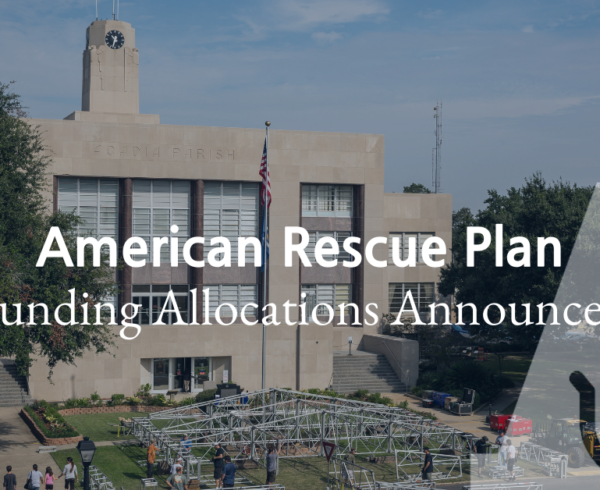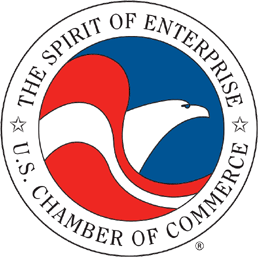In May 2020, during the first wave of the COVID pandemic that hit Louisiana, the RLC issued nine recommendations of near-term concerns for resiliency and recovery. These recommendations were pertinent for the beginning of the pandemic, and still hold relevancy today. Following the near-term recommendations set the path for the state to fulfill the long-term ones.
Putting health and safety first
With mask-wearing the first line of defense for many people, citizens have started to think prominently about the health and safety of their fellow neighbors. For the RLC it was important enough to put first in their near-term recommendations, and will continue to be so in the coming months. Governments, both local and state, must establish consistent reopening guidelines that are accessible and understandable. The continued statewide testing should increase as well as mobile testing sites in low-income areas. All residents should follow and encourage policies that prioritize health and safety (social distancing, wearing face coverings, etc.). For many businesses, the reshaping of physical spaces is necessary, as well as revising operations to protect employees and customers. Finally, the creation of a publicly available dashboard to track and monitor cases by industry would be extremely helpful in keeping the public informed.
Supporting employees
Most business owners by now know the importance of keeping employees on payroll during the pandemic. With the Paycheck Protection Program under the CARES Act being one of the most important aspects of the legislation, employers were given a wonderful incentive to keep their employees as much as they could. Emphasizing that need, the RLC recommended that employers should create resources to quickly connect high-skilled workers to jobs within their industry in order to retain more employees within the state. Also, more training resources are necessary to maximize opportunities for employees to work from home.
Taking care of our children and teachers
Education is a critical element in society, and its complexities were revealed these past months with the introduction of almost exclusively online classes. At each level, from elementary to secondary education, had to wade through uncharted waters as to how to best educate students without physically being in a classroom. Even though many schools have reopened and offer in-person classes, there is a need to provide the best practices that prioritize health and safety of both students and teachers. Also providing distance-learning opportunities to those who are immunocompromised or live with at-risk individuals. Finally, government officials and school boards should allocate funds toward testing and PPE for teachers and childcare workers.
Extending federal funding
Federal funding in the form of the PPP loan, CARES Act and other small business loan opportunities were crucial for many businesses staying afloat during the pandemic. A push for changes to those programs and improvements to others like the Main Street lending program are essential to making them more accessible to small business owners, Disadvantaged Business Enterprises, and community banks. There is also a need to broaden Opportunity Zone definitions and coverages.
Stimulating our economy
As businesses were forced to close down or reduce production significantly those first few months of the pandemic, the economy of the state (as well as globally) took a hit. The road to recovery will be tough, but ultimately possible. The RLC in May recommended that governments should consider eliminating the Corporate Franchise Tax, address net operating loss deductions, and develop a parish-by-parish tax relief program, as well as guidance for property taxes.
Supporting our small businesses
Small businesses are the backbone of the economy, and no other time like now does that stand true in such starkness. The need to develop and fund financial support systems for small businesses is critical, and these include loan programs, gap funding and seed capital. When state projects come available, prioritizing Louisiana small businesses whenever feasible should be the first option. Financial support connections, access to customer networks, and mentoring opportunities for disadvantaged businesses are all important to keep in mind. Finally, the state needs to market and promote small and local businesses and signal to customers that they are open.
Establishing guidelines for liability
It is critical for there to be liability protection and protocols in place for businesses while in the midst of this pandemic. And for there to be specific clarity and guidance on those protocols offered to businesses. Small and local businesses are the key to the survival of Louisiana, so protecting and insulating those employers from fraudulent and unreasonable exposure to COVID liability is one way governments can ensure their survival. These are ways employers can regain confidence so that their businesses can welcome back both employees and customers.
Improving regulatory efficiency
Everyone knows just how difficult it can be to fill out paperwork, regardless of who it is for. Yet state issued regulations, and filing the paperwork for them, must have efficiency for them to be effective for businesses. That is why the RLC recommended that state-issued documents accessible on the State of Louisiana website. There should also be a way for self-auditing and reporting to help reduce the need for in-person interactions. This year saw two major hurricanes devastate Louisiana, as well as other hurricanes throughout the Gulf Coast. There is need for guidance regarding these types of events in the future, especially if an event like that happens again in the midst of a pandemic.
Investing in infrastructure
The state’s infrastructure has struggled to withstand the pandemic, and this was something that the RLC recommended be changed from the beginning. Developing a state infrastructure investment package would go a long way to helping solve this issue, funded through a gas tax along with other revenue streams. Suspending the state’s self-imposed bond cap for construction borrowing would go a long way to helping itself. And finally, investing in public health infrastructure and expand access in rural locations, tribal communities and areas of poverty need to be addressed and prioritized.
Again this was the Resilient Louisiana Commission’s near-term recommendations that came out in May. Their long-term recommendations came out recently in November 2020. These long-term recommendations build upon the near-term ones, but focus on the bigger picture. Yet it is important to keep in mind that it is through the combination of both near and long-term goals that the system will work, and make a truly resilient Louisiana.
Come back for Part 3 of the Comprehensive Game Plan, which will entail the long-term recommendations given by the RLC.











